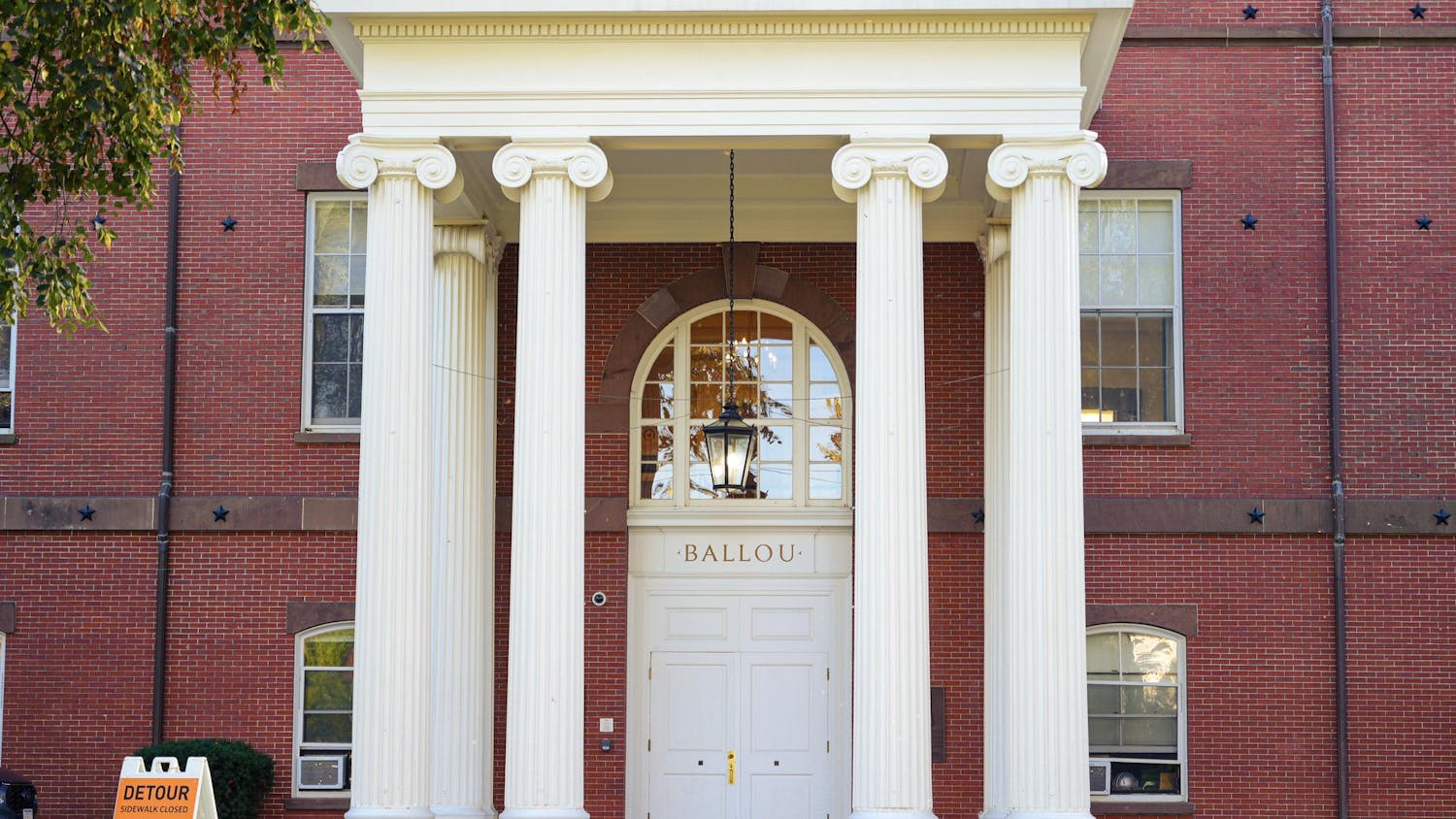Kamran Rastegar, professor of Arabic and comparative literature in the Department of International Literary and Visual Studies (ILVS), is the new director of the Center for the Humanities at Tufts (CHAT) after serving as interim director last semester. The former director, Lisa Lowe, was on leave last semester and now teaches at Yale University.
According to a 2008 press release from the Office of the Provost and senior vice president, CHAT was created by Fletcher Professor of Rhetoric and Debate Jonathan Wilson that year to be an interdisciplinary home for the humanities departments at Tufts.
According to Rastegar, his time at the Center started well before his stint as director. He served as a fellow, and in 2015, he co-organized the Mellon Sawyer Seminar in Comparative Global Humanities with Lowe and Associate Professor of History Kris Manjapra.
According to its website, the Mellon Sawyer Seminar was an interdisciplinary series of guest lectures and seminars featuring scholars from around Boston and the world, hosted by CHAT. Its goal was to foster alternative research and to reshape dominant historical and cultural narratives.
Rastegar, who also served on the Center’s faculty board before taking over as director, said that the Center would not be changing its approach dramatically.
“I feel very much like, certainly to begin with, I’m continuing in the same direction that Lisa [Lowe] had already envisioned for the center,” he said.
Currently, the center is bringing visiting scholars, faculty, postdoctoral fellows and dissertation fellows together for research under the theme of “Culture, History, and Translation,” according to its website.
Postdoctoral Fellow Hossein Ayazi, who is spending his year at CHAT working on a book project that reframes the post-World War II U.S. agricultural and rural development agenda as racial capitalism, said he appreciates the center’s commitment to challenging established academic norms.
“I really appreciate how a central goal of a lot of the work that’s being done here … tries to kind of unsettle prevailing objects of study, prevailing histories, prevailing ways of understanding the world,” he said.
Ayazi said he has enjoyed his time at CHAT so far, highlighting a workshop set up by the center where he was able to receive feedback on his book from Tufts faculty and a visiting scholar preeminent in his field.
Manjapra praised the Center as one of the few places on campus where scholars from different humanities departments can come together.
“I especially appreciate the opportunity to meet colleagues and students from different disciplines around the CHAT seminar table,” he wrote in an email to the Daily.
Manjapra also noted that CHAT’s focus on critical review and curricular transformation in the humanities complements the work done by the Department of Studies in Race, Colonialism, and Diaspora (RCD), which he chairs.
RCD cosponsored a series of seminars at CHAT last semester, according to the center’s website.
CHAT looks set to be an important part of on-campus research for the foreseeable future. Rastegar said that a 2013 strategic plan from the Provost’s Office has designated CHAT and its research focus as a priority for the university.
Rastegar explained that he thinks CHAT’s humanities research can play an important role in reframing contemporary issues.
“We try to make the humanities very much part of current concerns,” he said.
Rastegar used climate change as an example of this present focus, highlighting an upcoming CHAT-sponsored talk on urban biodiversity by UCLA Professor Ursula Heise.
Manjapra wrote that the study of the humanities is vital as a way to ask important questions that will advance the way the world is understood.
“University education is not just about gathering new knowledge, but it is fundamentally about understanding the limits of our knowledge,” he wrote. “University education is also about learning to ask questions that push and challenge the limits of what we think we know. These pursuits are humanities pursuits. You can easily say that given how quickly the world is changing in the 21st century, and given the obvious societal and ecological challenges and perils of our times, the Humanities are an undisputed priority."
Rastegar hopes that, during his time as director of CHAT, Tufts will continue to embrace the humanities.
“I think there’s an opportunity for Tufts to actually be seen as a university where the humanities [is addressing present issues],” Rastegar said.
More from The Tufts Daily





